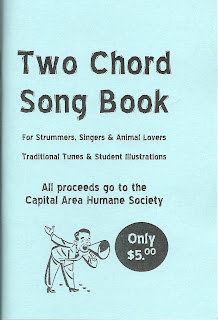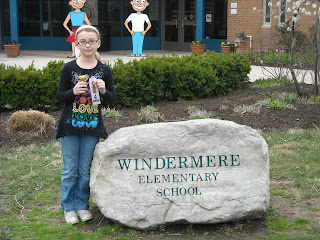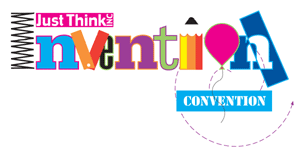Dear Families,
What We Learned This Week
Testing is over! TerraNova, In View (formerly Test of Cognitive Skills) and Ohio Mathematics Achievement Assessments are now complete. Results are usually back late spring, shortly before school is out. Please let me know if you have any questions once you receive them.
Next week's spelling words are comparatives and superlatives. Words that compare two things (comparatives) end in -er. Words that compare three or more things (superlatives) end in -est. Sometimes a spelling change is needed before adding an ending. This week's words are: taller, biggest, sadder, nicest, bigger, darkest, hotter, hottest, fattest, finest, safer, happiest. Other examples include: finer, cutest, sillier, madder, littlest, reddest, smallest, loudest, tallest, skinnier, luckier, earlier busier, silliest, stickiest, nastiest, funnier, loveliest, heaviest, rainier, glossier, chubbier, fancier, moodier. This week, during Word Study we looked at each spelling word in relationship to parts of speech. Can a word be both a noun and a verb (e.g. preview, premix, preset)? Because we had so many words with the same prefixes, we reviewed strategies for alphabetizing, which transfers to dictionary skills (although with computers, this skill is largely obsolete).
In Reading Workshop we completed our second author study on Peter Sis. We read two fiction books from his predominately non-fiction catalog of author/illustrator books, Komodo and The Three Golden Keys. We also read Tibet - Through The Red Box, the biographical account of his father's trip to Tibet during China's invasion. We also completed The Wall. Common elements in Sis's books are literal walls (Himalayan mountains, Berlin Wall) and figurative walls (scientific and cultural censorship, non-democratic forms of government); non-fiction; scientists, explorers and adventurers; maps and geography; research; and searching for scientific and universal truths. You can learn more about Peter Sis at his website: http://www.petersis.com/index2.html We will begin our final author study next week on Aminah Robinson, a Columbus born and based multi-material artist and book illustrator. She will be a focus of Mrs. Chisholm's art field trip. http://www.aminahsworld.org/index.php This is a fun interactive website that you may want to explore, especially if you are planning on chaperoning the upcoming field trip.
We began our Moustache Mysteries this week in Writing, a favorite fiction writing. Fiction writing, while preferred by most students because they tend to read more fiction, is very hard. Students have to create characters and plot, tie up loose ends and fill in explanations, all of which is fairly sophisticated. When writing research, personal narratives, friendly letters, persuasive writing, and instructional writing students do not have to create so much as recall and organize. Moustache Mysteries are supported with an equal amount of direction and freedom. Our four paragraphs are 1) discovering your moustache 2) an advantage to having a moustache 3) a disadvantage to having a moustache 4) making a final decision to keep the moustache or shave it. Within this framework, students have freedom to be creative and experience the challenges of writing fiction. Students also seem to really enjoy the idea of sporting a moustache:)
During Math, we started multi digit multiplication using partial products. Here is a short animation that demonstrates partial products https://www.everydaymathonline.com/ (Click on the following sequence: Free Family Resources Launch/Algorithms In Everyday Mathematics/3/Multiplication/Partial Products/Select an Animation). These animations are very beneficial for home understanding of what we are doing. The benefit of partial products is that it forces students to understand what they are doing as they perform their operations, efficient addition of same size groups. I do change the operations order from what Everyday Math (EDM) suggests. EDM starts with the largest place value factors, but I start with the ones place so the transition to the traditional algorithm is less confusing. We will begin the traditional algorithm, which is much more efficient and has fewer opportunities for errors, once we have a strong understanding of what we're actually doing during multiplication. Knowing your basic facts is essential for multi digit multiplication and is something you can help your student with at home as well. If they have not learned their facts yet using strategies, they should be completing a multiplication table each night as homework. Here is a link to blank multiplication sheets. It's even better if you can scramble the factors across the top. http://www.superteacherworksheets.com/multiplication/multiplication-table-blank-ten.pdf
We've nearly completed our study of immigration in Social Studies. Our guiding questions are:
- What does it mean to be American?
- Why did/do people immigrate to North America/United States?
- How have immigrants shaped North America?
- How (and why) do we define "us" and "them?"
- How (and why) do definitions of "us" and "them" change over time?
We will conclude this lesson with students writing journal entries and sharing what would be exciting and what would be scary or sad about immigrating to a new country.
Important Dates and Reminders
Kidsfest was a huge success! The weather was great (unless you were in the dunk tank and then you probably wished it was somewhere in the upper 90's). I hope everyone enjoyed themselves. I'm looking forward to soda geysers with the winner of my raffle.
May 3 - Students eat in the classroom, please do not send any peanut products. I will check for peanut products to the best of my ability and will wipe down all tables with Clorox wipes.
May 11 - Early release at 1:15. Science Exchange for students (more to come)
May 21 - Wish Run
May 24 - Art Field Trip to Columbus Museum of Art and downtown branch of Columbus Metropolitan Library (please let me know if you can chaperon)
May 30 - No school, Memorial Day
June 2 - Ukulele Orchestra Performance at 7pm
June 6 - Field Days (think hydration and sunscreen)
June 9 - Last day for students, classroom parties from 12:00 - 1:00
What We Learned This Week
Testing is over! TerraNova, In View (formerly Test of Cognitive Skills) and Ohio Mathematics Achievement Assessments are now complete. Results are usually back late spring, shortly before school is out. Please let me know if you have any questions once you receive them.
Next week's spelling words are comparatives and superlatives. Words that compare two things (comparatives) end in -er. Words that compare three or more things (superlatives) end in -est. Sometimes a spelling change is needed before adding an ending. This week's words are: taller, biggest, sadder, nicest, bigger, darkest, hotter, hottest, fattest, finest, safer, happiest. Other examples include: finer, cutest, sillier, madder, littlest, reddest, smallest, loudest, tallest, skinnier, luckier, earlier busier, silliest, stickiest, nastiest, funnier, loveliest, heaviest, rainier, glossier, chubbier, fancier, moodier. This week, during Word Study we looked at each spelling word in relationship to parts of speech. Can a word be both a noun and a verb (e.g. preview, premix, preset)? Because we had so many words with the same prefixes, we reviewed strategies for alphabetizing, which transfers to dictionary skills (although with computers, this skill is largely obsolete).
In Reading Workshop we completed our second author study on Peter Sis. We read two fiction books from his predominately non-fiction catalog of author/illustrator books, Komodo and The Three Golden Keys. We also read Tibet - Through The Red Box, the biographical account of his father's trip to Tibet during China's invasion. We also completed The Wall. Common elements in Sis's books are literal walls (Himalayan mountains, Berlin Wall) and figurative walls (scientific and cultural censorship, non-democratic forms of government); non-fiction; scientists, explorers and adventurers; maps and geography; research; and searching for scientific and universal truths. You can learn more about Peter Sis at his website: http://www.petersis.com/index2.html We will begin our final author study next week on Aminah Robinson, a Columbus born and based multi-material artist and book illustrator. She will be a focus of Mrs. Chisholm's art field trip. http://www.aminahsworld.org/index.php This is a fun interactive website that you may want to explore, especially if you are planning on chaperoning the upcoming field trip.
We began our Moustache Mysteries this week in Writing, a favorite fiction writing. Fiction writing, while preferred by most students because they tend to read more fiction, is very hard. Students have to create characters and plot, tie up loose ends and fill in explanations, all of which is fairly sophisticated. When writing research, personal narratives, friendly letters, persuasive writing, and instructional writing students do not have to create so much as recall and organize. Moustache Mysteries are supported with an equal amount of direction and freedom. Our four paragraphs are 1) discovering your moustache 2) an advantage to having a moustache 3) a disadvantage to having a moustache 4) making a final decision to keep the moustache or shave it. Within this framework, students have freedom to be creative and experience the challenges of writing fiction. Students also seem to really enjoy the idea of sporting a moustache:)
During Math, we started multi digit multiplication using partial products. Here is a short animation that demonstrates partial products https://www.everydaymathonline.com/ (Click on the following sequence: Free Family Resources Launch/Algorithms In Everyday Mathematics/3/Multiplication/Partial Products/Select an Animation). These animations are very beneficial for home understanding of what we are doing. The benefit of partial products is that it forces students to understand what they are doing as they perform their operations, efficient addition of same size groups. I do change the operations order from what Everyday Math (EDM) suggests. EDM starts with the largest place value factors, but I start with the ones place so the transition to the traditional algorithm is less confusing. We will begin the traditional algorithm, which is much more efficient and has fewer opportunities for errors, once we have a strong understanding of what we're actually doing during multiplication. Knowing your basic facts is essential for multi digit multiplication and is something you can help your student with at home as well. If they have not learned their facts yet using strategies, they should be completing a multiplication table each night as homework. Here is a link to blank multiplication sheets. It's even better if you can scramble the factors across the top. http://www.superteacherworksheets.com/multiplication/multiplication-table-blank-ten.pdf
We've nearly completed our study of immigration in Social Studies. Our guiding questions are:
- What does it mean to be American?
- Why did/do people immigrate to North America/United States?
- How have immigrants shaped North America?
- How (and why) do we define "us" and "them?"
- How (and why) do definitions of "us" and "them" change over time?
We will conclude this lesson with students writing journal entries and sharing what would be exciting and what would be scary or sad about immigrating to a new country.
Important Dates and Reminders
Kidsfest was a huge success! The weather was great (unless you were in the dunk tank and then you probably wished it was somewhere in the upper 90's). I hope everyone enjoyed themselves. I'm looking forward to soda geysers with the winner of my raffle.
May 3 - Students eat in the classroom, please do not send any peanut products. I will check for peanut products to the best of my ability and will wipe down all tables with Clorox wipes.
May 11 - Early release at 1:15. Science Exchange for students (more to come)
May 21 - Wish Run
May 24 - Art Field Trip to Columbus Museum of Art and downtown branch of Columbus Metropolitan Library (please let me know if you can chaperon)
May 30 - No school, Memorial Day
June 2 - Ukulele Orchestra Performance at 7pm
June 6 - Field Days (think hydration and sunscreen)
June 9 - Last day for students, classroom parties from 12:00 - 1:00





























